Our Caravan Fridge Range
No matter where you need something kept cool, Outback Equipment has something to suit your needs. Shop our range of caravan fridges, camping coolers and camping fridges.
DOMETIC HANDLE BLACK T/S RM4601/5/4805 2932093038
Don't Pay RRP: $34.99
Vitrifrigo DP2600 2 Door Fridge Freezer 230L 12-24V
Don't Pay RRP: $3,199.99
Camco Refrigerator Bar White 3 Per Pack. 44053
Don't Pay RRP: $33.95
Dometic 153L 1-Door Absorption Fridge/Freezer RUA5208X
Don't Pay RRP: $3,245.00
Dometic 153L 1-Door Compressor Fridge/Freezer
Don't Pay RRP: $3,245.00
Dometic 188L 2-Door Absorption Fridge/Freezer RUA6408X
Don't Pay RRP: $3,555.00
Dometic 188L 2-Door Compressor Fridge/Freezer RUC6408X
Don't Pay RRP: $3,225.00
Dometic 224L 2-Door Compressor Fridge/Freezer RUC8408X
Don't Pay RRP: $3,389.00
Dometic 224L 3 Way 12/240V & Gas 2-Door Absorption Fridge/Freezer RUA8408X
Don't Pay RRP: $4,155.00
Dometic 95 L Fridge Freezer with Universal Energy Selection RM2356
Don't Pay RRP: $2,060.00
Dometic CoolMatic CR110 Standard Mount Frame
Don't Pay RRP: $125.00
Dometic CoolMatic CR140 Standard Mount Frame
Don't Pay RRP: $129.00
Dometic CoolMatic CR50 Standard Mount Frame
Don't Pay RRP: $105.00
Dometic CoolMatic CR65 Standard Mount Frame
Don't Pay RRP: $115.00
Dometic CoolMatic CR80 Standard Mount Frame
Don't Pay RRP: $119.00
Dometic Coolmatic Flushmount Installation Frame For CR110/CRX110 Fridges
Don't Pay RRP: $155.00
Dometic Coolmatic Flushmount Installation Frame For CR50/CRX50 Fridges
Don't Pay RRP: $135.00
Buying the right caravan fridge and freezer
There are an overwhelming range of products, so if this is your first time buying a caravan fridge or freezer, we suggest having a read through of our guide to get a better understanding of what you’ll need. If you're building a motorhome or caravan from scratch, it’s important to choose your bigger appliances first. A caravan fridge will always be the best place to start. Read up on caravan fridge compliance before purchasing and how it might have to be vented to the outside or installed correctly to ensure longevity. Ask yourself how much power you can afford to keep it running and consider all your options on 12v, 24v, 240v and gas before choosing the right product. There are always benefits to a stand-up caravan fridge, being able to see clearly through to the back of a fridge is a great way to keep an eye on what's running low. It also adds to the feeling of being at home on the road.
We recommend measuring how far the door will open across your caravan to avoid not being able to access inside properly. This is where some people might prefer a camping fridge that slides out from inside a drawer but a full fridge moving back and forth a lot has been known to wear out the runners on a drawer over time and may need re-adjusting later on. It really comes down to design and functionality so please read below carefully before making a purchase.
If you own one of the following vehicles, then you’re in the right place for a fridge/freezer:
-
Big vans
-
Smaller vans
-
Pop Tops
-
Hybrids
-
Campers
-
Camper trailers
-
Motorhomes
-
Vans
-
4wds
Domestic Fridges & Freezers
As much as we’re all for camping and the outdoors, we also apply that knowledge to domestic fridges and freezers. We also understand that harnessing solar energy is becoming more accepted and that more and more families are choosing to build tiny homes or live off grid. If you need a tough, durable and spacious fridge for the kitchen or bar, that won’t draw too much power, we’ve got a range to suit.
So, what are the options?
We’ve made understanding simple:
-
1 way is 12-volt only.
-
2 way is 240-volt and 12-volt.
-
3 way is 12-volt, 240-volt and gas.
Most camping and caravan fridges being produced currently are 2-way and use compressor technology. This technology is designed to take advantage of the progression we’ve seen in solar and battery technology and therefore allowing fridges to run consistently and more efficiently. 3-way fridges have been described as a bit of a pain to run, as they go out all the time and the van must be perfectly level to operate properly. However, they cool more efficiently than when running on 12-volts. The other advantage to using a 3-way fridge or the ‘absorption’ method is longevity. Compression fridges will generally need replacing after 10-15 years whereas the latter will last 20+ if looked after properly. 3-way fridges have their advantages. However, with the advance in design and technology of solar/battery systems, 2-way fridges are slowly cornering the market as the future of cooling and storing food items on long trips.
3-way fridges although older in technology, do have some distinct efficiency advantages if your power set up for the fridge is designed around gas. In some circumstances, a 3-way fridge can be run for up to 2 weeks on a single 9kg LPG bottle without any other strain on your van’s electrical stores.
Another choice is a portable thermo electric cooler box by Dometic, which can be described as a cold fan-forced Esky. These are best used for short day trips, like picnics or if you drive a truck around delivering items and want to keep your lunch cold. But it’s not recommended as a permanent set up as it draws quite a bit of power when the vehicle is turned off and isn’t as efficient on hot days.
3-way Fridges
Also known as ‘absorption fridges, where the cycling of ammonia, water and hydrogen are all reacting with each other in order to naturally cool down a space. These fridges can operate on gas, 12-volt or 240V which is handy if you plan on doing a lap of Australia in comfort. Designed to have a multi powered electrical system depending on where you set up and for how long.
Dometic have cornered the caravan fridge market for many years, but many competing brands like Sphere and Companion have popped up, with great quality products at bargain prices. When free camping, the 3-way fridges offer great efficiency when running on gas or 12-volts. A quality camping fridge shouldn’t draw more than 5amps per hour, so it is possible to leave it running all night without affecting the life of your battery and even if you run low on solar power, there are still two other options to choose from, to ensure everything in your fridge doesn’t go to waste. A decent 3-way fridge will last weeks on a single 9kg gas bottle, which makes staying off grid and away from people that much easier. Be mindful that gas is not free like solar, so as a cheaper running option it is recommended to stick to a 2-way fridge.
If you do run out of gas, 3-way fridges tend to be much less efficient than a compressor fridge when running off 12-volts, so they will go through your battery quickly if left running on 12-volts when your car has stopped. Some 3-way fridges come with AES (Automatic Energy Selection) which will automatically select the best energy source available. It will switch to pulling power from a 12-volt source whilst the vehicle is on and back to gas when the vehicle is off. Finally, 3-way fridges are completely silent whilst running, as the absorption cooling method has no moving parts. They do contain thermostat fans which are in-built to increase airflow but are usually very quiet.
2-way Fridges
2-way or ‘compressor’ fridges work the same way as a domestic fridge does. They work by compressing refrigerated vapour back into liquid form to keep the cooling cycle going. This type of technology is highly recommended when travelling though hotter temperatures as they automatically adjust to compensate and continue to provide consistent cooling for the most part. These fridges use electricity only and can be powered by 12V, 24V or 240V. Most brands such as Waeco, Companion, Engel, Dometic and Sphere come with two interchangeable power adaptors, so the user has the choice of where to draw power from.
As efficient as 2-way fridges are, you will still need a good battery and solar setup if you plan on living on the road for a long period of time. Compressor fridges are designed primarily for 12-volts, so generally more popular with van conversions and caravans. Compressor fridges are not as quiet as a 3-way fridge so if you’re a light sleeper or think the sound of an appliance ticking over occasionally might drive you insane then it might be best to consider other options. Alternatively, because these fridges don’t need to be vented, most campers get away with a fridge cover and when the drawer is closed you can hardly hear the hum.
Installation Tips
Installing a fridge into any motorhome or caravan comes with its pros and cons. Some engineers will ask you to strap down a fridge due to height and weight and other will insist on installing vents to account for the gas consumption. 3-way fridges must be properly vented to the outside of the RV to allow heat and any gas emissions to escape. They must also be completely sealed from the cabin, which means fitting it into an enclosed cupboard. Some people have gotten very creative by attaching their fridge door to a cupboard door, so you only have to open one door in order to access your food quickly, but it really comes down to what will pass an inspection, so do your research carefully and double check you comply before paying for an assessment.
Compressor fridges are much simpler to install, and do not require any venting. We suggest leaving plenty of room at the back where the cables attach to the fridge and where possible, use brackets to ensure the fridge does not slide around inside a compartment. Cables are not bullet proof and can break over time when strained under the weight of a 50kg fridge.
What are our top picks when comparing what product is right for you?
For a caravan, motorhome or large van:
If you want the biggest and the best, Vitrifrigo offers a whopping 230L capacity 2-way system with LED lights. Or the Dometic 224L 2-way fridge with all the bells and whistles, including a control panel and automatic power detection system. These are ideal for families and those who like to stay off grid for weeks at a time.
For pop tops, small vans, buses or hybrids:
The Vitrifrigo 133L compressor fridge or Dometic 140L both offer impressive value in terms of storage and power efficiency, known for their reliability running off solar.
For 4x4s, campers and camper trailers:
A camping fridge is ideal for more extreme adventures as their horizontal, top opening design allows you to pack a lot more into them. It entirely depends on your budget, there a so many great products available for all rigs and set-ups but Dometic, Engel and Waeco are renowned for the reliability of their fridges. They come in a range of sizes from console fridges all the way up to 95L capacity for the longest of 4x4 adventures. It’s always best to have a peak into your fridge at home and make a note of what you usually buy and consume. Bear in mind that when you're travelling in 35+ degrees a lot of food that would usually stay fresh in a house will not last in the confines of humid vehicles. Tinned foods are usually fine to store, but jarred foods, condiments and fruit will spoil quickly in the hot Australian sun. Therefore, the bigger the fridge the better the meal. For those that love to cook, having a top-quality fridge is invaluable when travelling. For any other questions please feel free to contact our friendly customer service team. View our full range of caravan accessories.





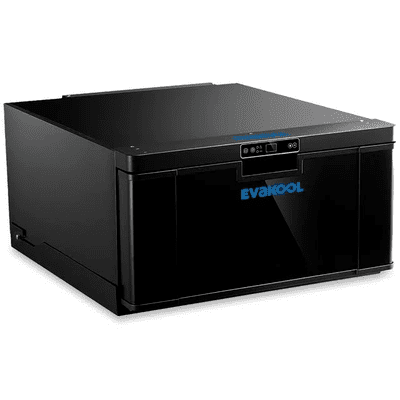
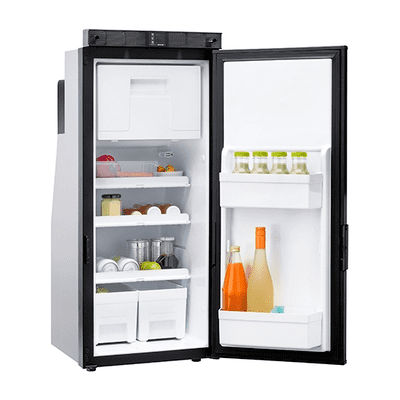
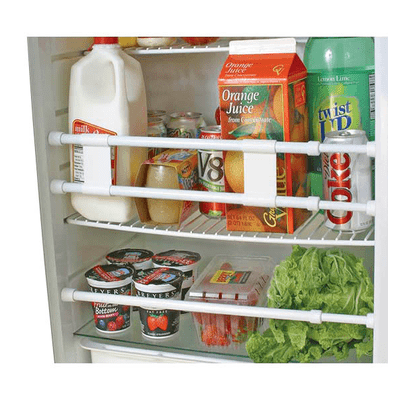
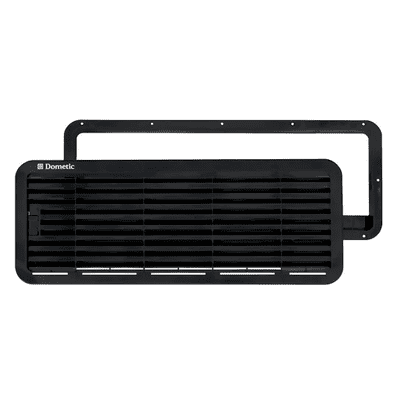
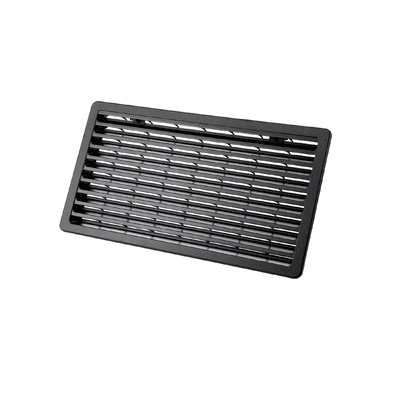

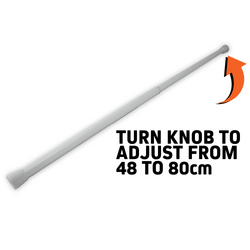

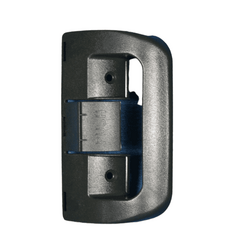

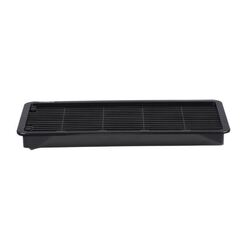
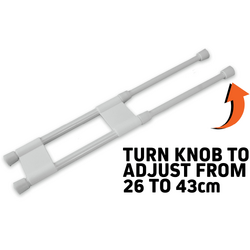
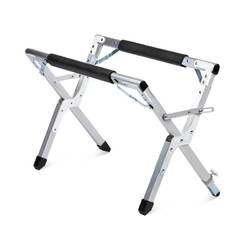
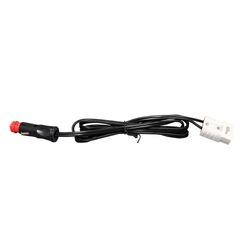

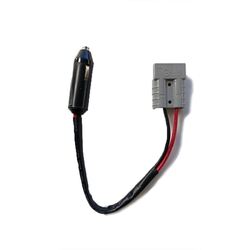
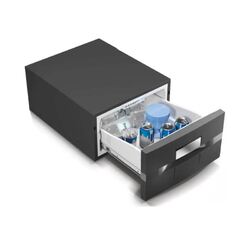

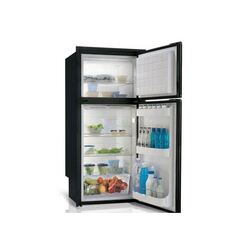
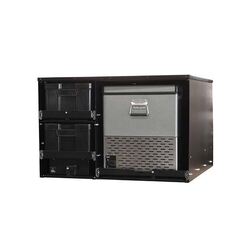

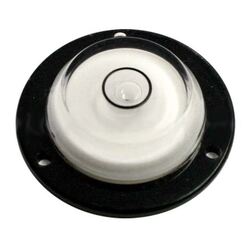
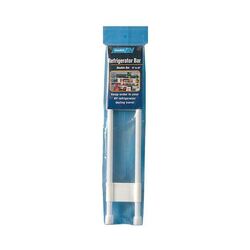




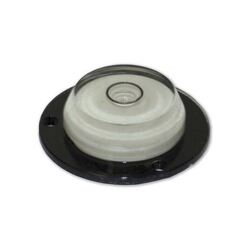

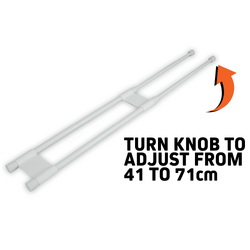




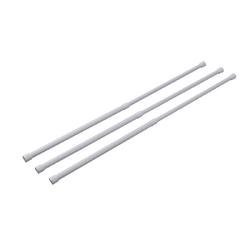

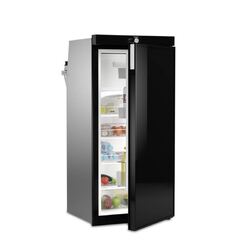
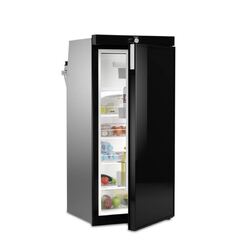
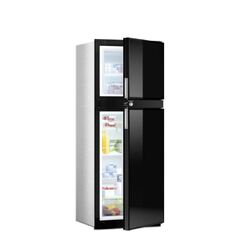
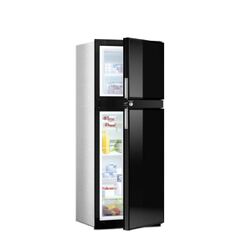
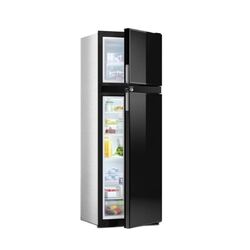
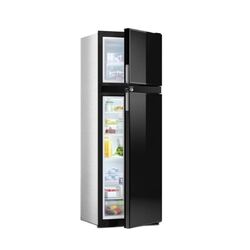
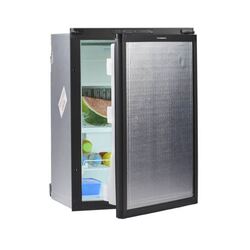
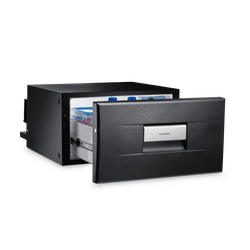
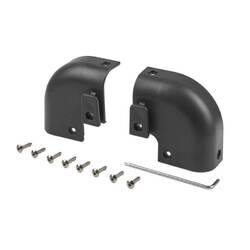
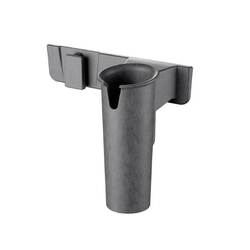
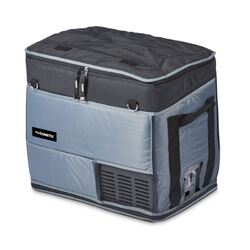
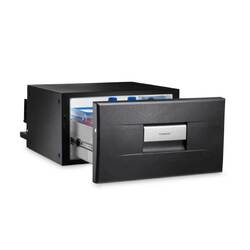
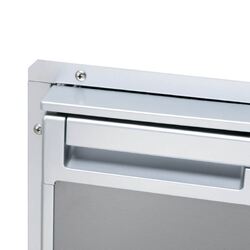
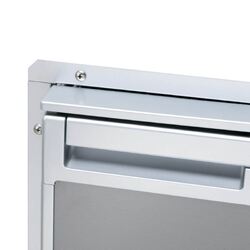
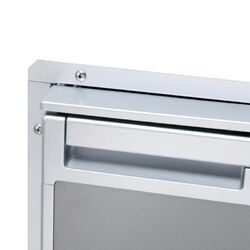
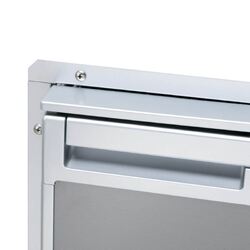
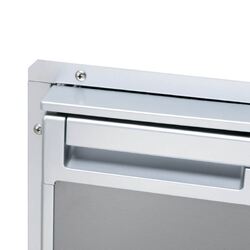
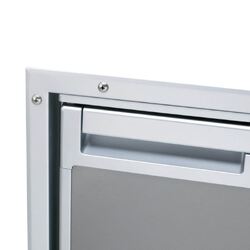
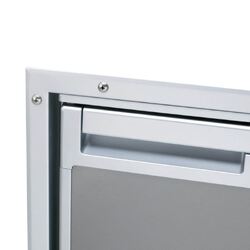
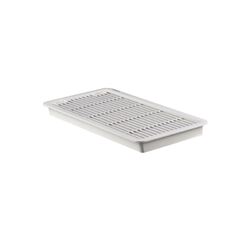




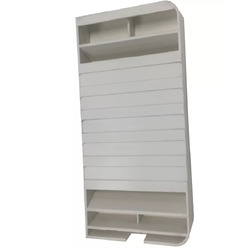
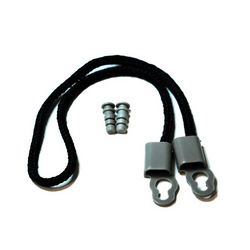
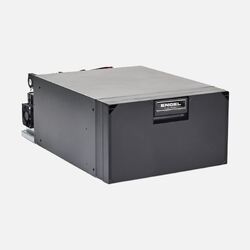

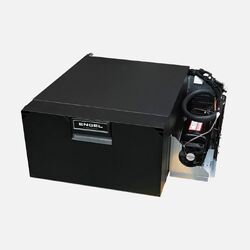
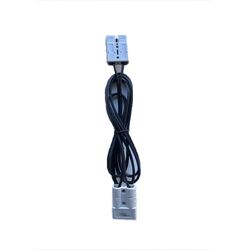
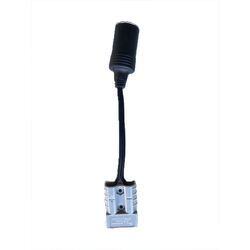
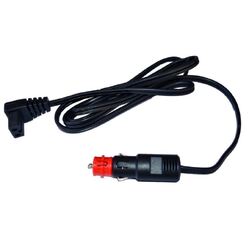
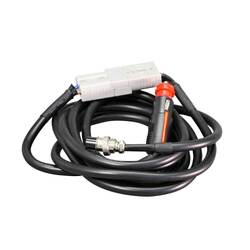
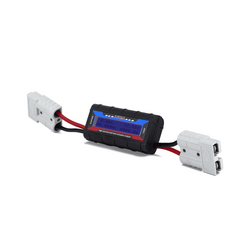

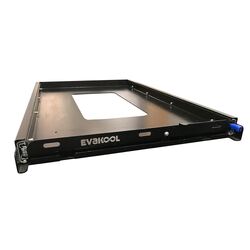
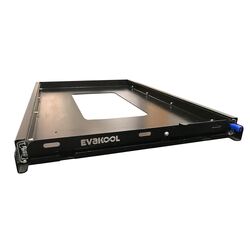
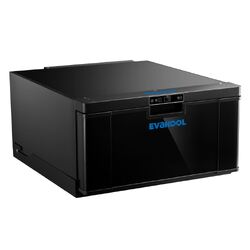
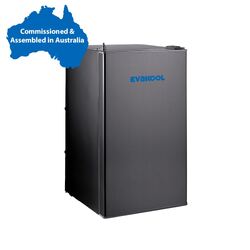
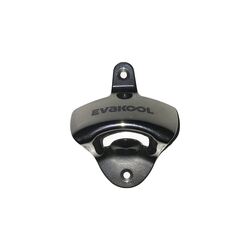

.png)